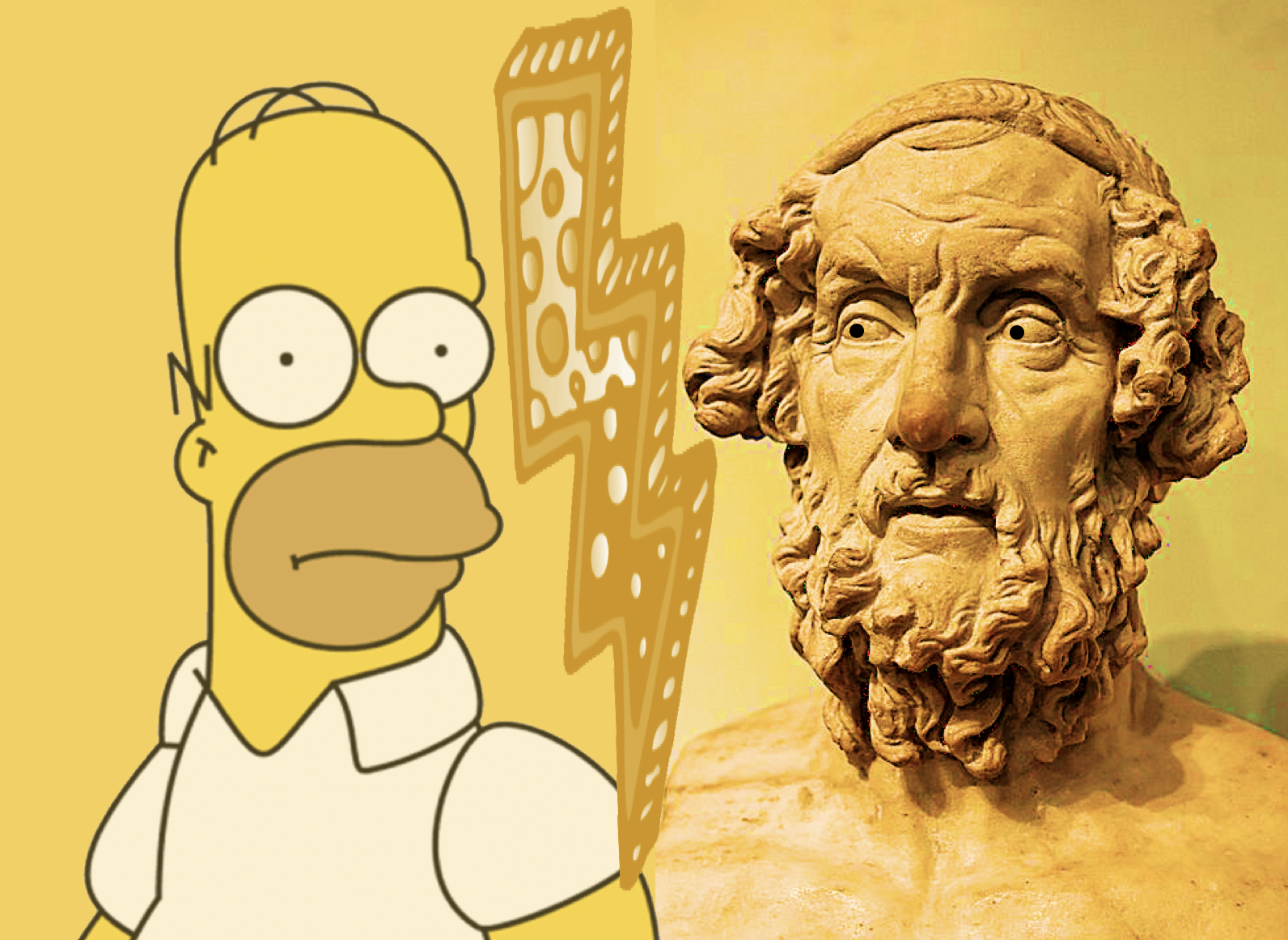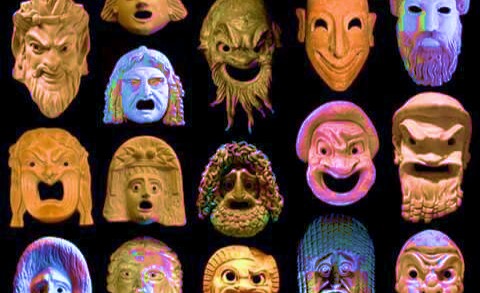Our decadent elite cannot survive our technological transformation.
Why Not Actually Engage with Bronze Age Mindset?

Ideologues seem incapable of doing so without resorting to name-calling.
Last month I published an article about the re-emergence of ideological writing on the internet, which focused on orthodox leftist and Christian political writing published in the wake of the Trump election. Some of those writers explicitly invoked Bronze Age Pervert (BAP) and his book Bronze Age Mindset (BAM) while others simply focused on the evils of left- and right-wing Nietzscheanism or fascism and the dangers posed by its re-emergence on the internet.
My article stressed that these anti-Nietzschean/Fascist ideologues on the orthodox Left and Right were stimulated to write by something bigger than Bronze Age Pervert and Nietzsche: they feared the internet as a space to stage challenges to traditional institutions of power and the people and ideas that reinforce them. (I specifically referenced Tara Isabella Burton and Dan DeCarlo, both of have also responded to Michael Anton’s review of BAM here at The American Mind.)
I suspect that Anton’s review in the Claremont Review of Books is primarily stimulated by an analogous sense of insecurity brought on by the eruption of direct challenges to the ideologue’s authority through the internet. BAM is a safe target for ideologues, for defenders of the status quo, because it’s an exhortation rather than a rigorous analytical work. They can call it old Nietzschean wine in new bottles or bargain bin Nietzscheanism, and think they have thereby refuted the claims upon which it rests. But I seriously doubt the capacity of many of these ideologues to produce rigorous analytical or empirical defenses of their positions, because this requires the sort of rare, fanatical devotion to discovery and truth praised in BAM.
What Ideologues Fear
Nevertheless, BAM is a Nietzschean book and BAP is a Nietzschean. I don’t think BAP would deny this, but this isn’t what’s interesting about BAM, except maybe to intellectual historians and other academics. Most are not interested in it because, for example, it contains esoteric allusions to arrows like Nietzsche’s books (the whole of philosophy, from Machiavelli to Saul Alinsky, is as shot through with archery metaphors as an archery target after target practice).
What troubles BAP’s critics is that BAM is popular with the youth in spite of its esoteric allusions. It’s alluring because it preaches the opposite of mainstream dogma—that is, it preaches things everyone instinctively knows to be true, like the value of beauty, objective standards of excellence, loyalty, and self-discipline. Most importantly, it espouses an explosive proposition that people of all colors and creeds could agree upon: most of our leadership and rich do not deserve what they have. This is disturbing to establishment ideologues because it departs from the traditional leftist caricature of the Right as just a nihilistic defense of white wealth and power.
Why don’t these critics take a more critical approach to BAM or internet vitalism and try to see the value in it, in spite of the ideological contradictions it poses? I think it would be useful for ideological defenders of institutions besieged by modernity, like the orthodox left and Catholicism, to do this, and I think the fact that they don’t further reinforces my point that they’re arguing in bad faith.
Yes, BAM espouses unpalatable views, says mean things about minorities, and questions cherished beliefs about history, science, and philosophy. Anton mentioned that an “anti-Democracy blogger” named Curtis Yarvin encouraged him to grit his teeth and read BAM. Indeed, BAM is popular among elitists. For many, this is sufficient to wrap it up in a label with negative emotional connotations, like fascism, and dispense with it without adducing an argument.
As for me, I’m a democrat, a party man to the end. I love wallowing in my own filth and mediocrity with the rest of the people, taking just a modicum of elite self-satisfaction in ironic detachment from my own degradation. This isn’t Nietzschean or BAPitalist. Far from it. And yet I see value in BAM for myself, for the orthodox Left, Christians, and others. I’ll offer some examples before concluding.
Where is the Real Criticism?
When BAP asks us to consider how we would respond if our traditional beliefs were disproven, or shown to be conspiracies and frauds—like for example a revelation that Aristotle’s oeuvre was invented in the middle ages—he’s inviting us to consider what it would be like to separate our conscious lives from control by custodians of the dogma. When he presents the concept of the oligopsychos, the small-souled bugman, he’s presenting a concept of merit that can fuel a revolt against the elites across the political spectrum. When BAP asks the reader to distance himself from the webs of formal abstraction woven by ideologues, he’s asking that the reader inoculate himself against the manipulative use of words with emotional connotations. When one sees the playfulness and joy with which BAP writes, sees his veneration of ecstatic religious experience, one can be inspired to authentic action and experience regardless of one’s political and religious affiliations.
These aren’t shocking revelations. Nietzsche himself appeals to everyone across the political and religious spectrum. What is shocking is that orthodox leftist and Christian ideologues, and perhaps Straussians, are so quick to denounce BAM and call for extreme measures against pseudonymous internet posters. Consider a narrative which I think would, perhaps with some modification, be palatable to every political and religious perspective:
Once upon a time, decadent and unmeritorious men hid behind ideas of biological and cultural supremacism to rationalize their disproportionate power and wealth. Against this injustice there arose many great activists and philosophers, who in turn won great victories against the establishment, stripping the unmeritorious of power. The activist-philosophers mistook this victory for proof of their propositions, however, and so a new caste of unmeritorious bugmen assumed disproportionate power and wealth, only this time hiding behind the veil of anti-fascist and equalist ideology while the activist-philosophers looked on uncritically.
My understanding is that orthodox leftists, Christians, and Straussians are armed with powerful critical historical lenses with which they normally evaluate contemporary ideas. Non-Nietzschean intellectuals face challenging contradictions or tensions in other theorists’ work and discuss them rationally.
For example, why is it plausible for the legal philosopher Carl Schmitt to retrospectively cast the secularization of law—the disempowerment of theologians—as a fundamentally Christian achievement—a fundamental Christian good? Why would the Venerable Fulton Sheen feel comfortable calling Hitler the anti-Christ while simultaneously warning that the coming anti-Christ will invoke the greatness of Christ and promise to “liberate men from the servitudes of superstition and fascism”? Why is it possible for Marxists to frame slavery or serfdom as relative goods in the stages of human development? Why are Straussians able to tolerate obscene contradictions and the classical harshness of, for example, Aristotle’s philosophy of slavery?
If today’s critics of BAM can wrestle openly and subtly with such difficult material from the past, why can’t they find the courage to do so now with BAP, in the context of challenges from pseudonymous internet discourse?
If these ideologues are sincere and agree that perhaps something is wrong with the direction of the modern world, then they should feel comfortable accepting criticism for their complacency from historical enemies who nonetheless share similar goals and even ideas. Straussians, for example, should feel comfortable reading John Murray Cuddihy’s analysis of their great teacher. Marxists and Christians should feel comfortable reading attacks on their hypocrisy and perhaps incorporate some of that criticism into their own analyses. They shouldn’t feel the need to make hysterical comparisons and denunciations requiring government and corporate intervention—unless they have ulterior motives.
The American Mind presents a range of perspectives. Views are writers’ own and do not necessarily represent those of The Claremont Institute.
The American Mind is a publication of the Claremont Institute, a non-profit 501(c)(3) organization, dedicated to restoring the principles of the American Founding to their rightful, preeminent authority in our national life. Interested in supporting our work? Gifts to the Claremont Institute are tax-deductible.
Nothing really matters, zany pervs can see.
The BAPists may be fun to read, but there is little of value beneath their empty aesthetic.
Traditional conservatives could use a fresh rhetoric of masculinity.
New artefacts overthrow old impostures.
What should the Right make of Bronze Age Pervert and his Twitter devotées?






